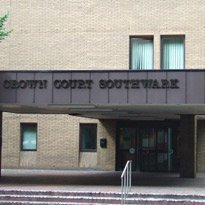Three former directors of iSoft, who are on trial for allegedly misleading investors about the state of the company, would have been in no doubt that a key contract had not been signed, jurors have been told.
Seamus Butler, the director of IT for the Irish Health Service Executive, appeared at Southwark Crown Court yesterday, and said there had been problems in securing funding for the contract in 2003.
The prosecution claims Stephen Graham, Timothy Whiston and John Whelan forged the signature of another member of the IHSE to make it look as if they had secured the contract, which was not signed until April 2005.
In his opening statement to the jury, Richard Latham QC, prosecuting, said they did this to avoid booking a loss for the company, to secure a merger with GP systems supplier Torex and to win further contacts from the NHS.
He also said director of operations Graham, finance director Whiston, and erstwhile group financial controller Whelan, became millionaires or expected high pay and bonuses based on the company’s apparent success.
Butler said the “obstacle” to signing the contract with iSoft between October 2003 and April 2005 had been the delay in gaining approval for funding from Ireland’s Department of Health and Children.
Mr Latham asked: “Were iSoft left in any doubt that that was the problem?” To which Butler replied: “No, I do not believe so.”
In his opening statement, Mr Latham said a “forgery kit” had been discovered that was used to transfer the signature of Pat McLoughlin, a senior member of the South Eastern Health Board, which was leading the negotiations at the time, from a heads of agreement document to a draft contract.
During his appearance in court, Butler was questioned about the heads of agreement document, which was prepared around October 2003.
Mr Latham asked: “Looking at the heads of agreement, which you signed, did you regard that as evidence of an arrangement with the board of iSoft and the SEHB? How did you regard it?
“I think I regarded it as a simple statement of the position at that point in time,” Butler replied. “We did not attach a lot of significance to it, because the documents was – on the advice of our solicitor – not legally binding.
“It really was a simple description of the current status of the discussions between the parties at that time.”
None of the four men have any connection with iSoft today. The company, based in Banbury, Oxfordshire, was sold to Australian software firm IBA Health after a takeover in October 2007.
Each of the other men deny conspiracy to make misleading statements, promises or forecasts, contrary to the Financial Services and Markets Act 2000 and section 1 of the Criminal Law Act.
Former iSoft chief executive Patrick Cryne is not before the court, having become unwell since proceedings started.
Comments have been closed on this story to comply with the law on contempt of court. Comments will be re-opened when the trial has concluded.

